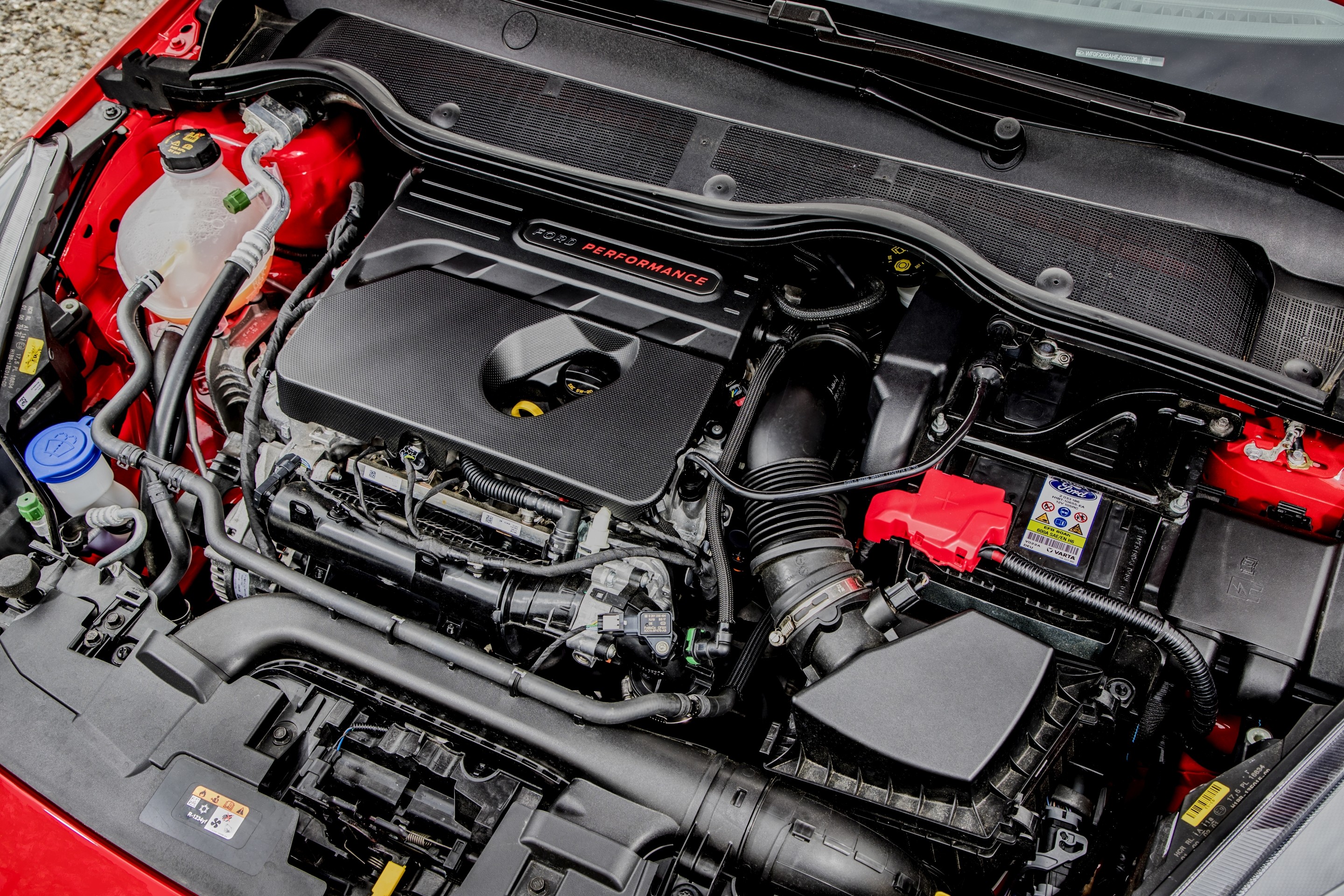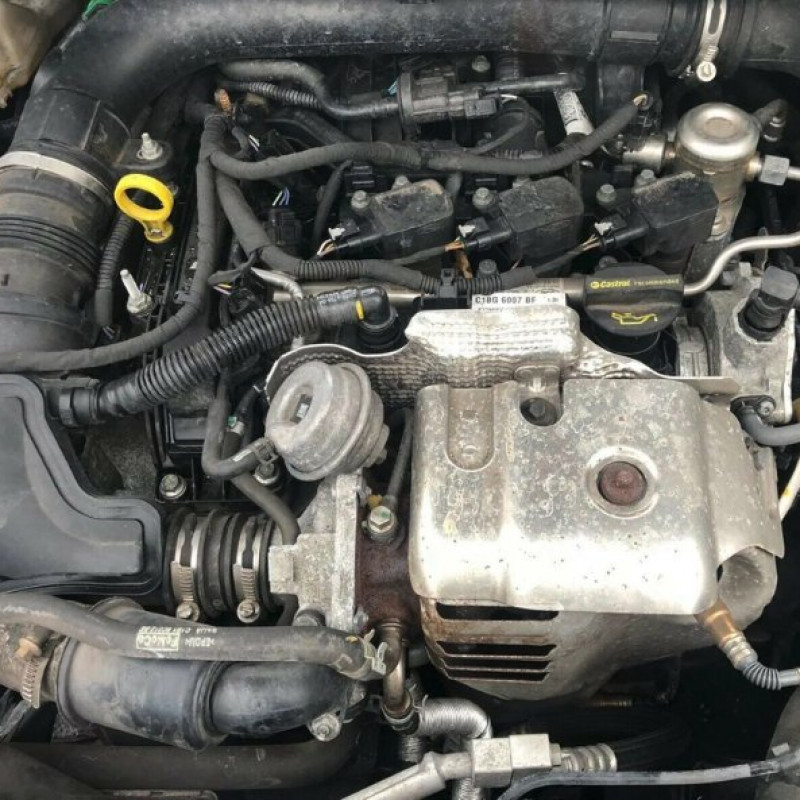The Future of Engines: Advancements Driving Sustainable Power Solutions
As the automotive market browses the essential change towards sustainability, the future of engines is significantly defined by groundbreaking technologies. Electric engine innovations, together with promising developments in hydrogen gas cells and biofuels, are reshaping the landscape of power services. The introduction of hybrid systems further complicates this development, presenting both chances and challenges to lower discharges efficiently. Combined with the combination of expert system in engine layout, these technical strides elevate important questions regarding their lasting feasibility and effect on typical paradigms. What might this imply for the market and customers alike?
Electric Engine Advancement
The advancement of electric engine advancements indicates an essential shift in the aerospace and auto industries, driven by the urgent demand for sustainable alternatives to fossil fuels. This change is defined by considerable innovations in battery innovation, power electronics, and electric motor layout, which jointly enhance the efficiency and performance of electrical engines.
Current advancements have resulted in the creation of lighter, more energy-dense batteries, such as lithium-silicon and solid-state batteries, which assure longer arrays and shorter charging times. In addition, renovations in electric motor efficiency, such as making use of irreversible magnets and advanced cooling systems, enable electrical engines to run efficiently under varying problems. These enhancements not just boost vehicle performance yet additionally contribute to a decrease in general energy usage.
Furthermore, the integration of innovative software program algorithms has actually enhanced power management in electrical vehicles, permitting regenerative braking and anticipating charging strategies. As makers progressively welcome electric propulsion, the auto and aerospace industries are observing a paradigm change towards greener innovations. This evolution not only fulfills regulatory needs but likewise aligns with customer choices for environmentally pleasant transport solutions, strengthening electrical engines as a cornerstone of future lasting mobility.
Developments in Biofuels
As the aerospace and automotive markets significantly prioritize sustainable power resources, innovations in biofuels emerge as a corresponding remedy to electric engines. Biofuels, originated from organic materials such as plants, waste, and algae, offer an innovative opportunity for lowering greenhouse gas discharges and dependence on nonrenewable fuel sources.
Current study has actually focused on enhancing the effectiveness and sustainability of biofuel manufacturing. Second-generation biofuels make use of non-food feedstocks, minimizing competition with food supply and decreasing ecological effect. Moreover, developments in synthetic biology have allowed the design of microbes to generate biofuels better, causing greater yields and lower production costs.
Furthermore, the advancement of drop-in biofuels enables for seamless combination right into existing facilities, allowing a smoother transition for industries traditionally reliant on fossil fuels. ford fiesta engine. These fuels can be used in existing engines without alterations, promoting their fostering throughout numerous fields
Investments in biofuel modern technology, along with supportive policies, are necessary to drive technology and scalability. As the global area seeks to combat climate adjustment, biofuels offer a practical, instant service that aligns with the overarching objective of sustainability in transport and aeronautics.
Hydrogen Fuel Cell Innovation
A growing variety of business and scientists are checking out hydrogen fuel cell innovation as a practical alternative to traditional source of power in transportation and power systems. This technology transforms chemical energy from hydrogen right into power via an electrochemical reaction, with water as the only byproduct, making it an eco-friendly alternative.
The core of hydrogen gas cells is the fuel cell pile, where hydrogen molecules are divided right into electrons and protons. The flow of electrons generates electrical energy, while protons move with a membrane to integrate with oxygen from the air, creating water. This procedure leads to high efficiency and low exhausts, positioning hydrogen gas cells as a critical gamer in the change to sustainable power.
Considerable advancements have been made in improving the durability and effectiveness of gas cells, alongside lowering costs with innovative production strategies. The development of hydrogen production approaches, such as electrolysis powered by renewable energy resources, improves the sustainability of the general system. As infrastructure for hydrogen refueling expands and manufacturing methods become much more effective, hydrogen fuel cell modern technology holds terrific promise for decarbonizing different markets, consisting of durable transport and fixed power generation.
Crossbreed Equipments and Their Influence
Hybrid systems stand for a substantial advancement in lasting engine innovation, combining conventional internal burning engines with electrical propulsion to maximize power efficiency and reduce exhausts (ford fiesta engine). This double technique permits vehicles to make use of both source of power, enabling better versatility in energy consumption and lowering dependence on nonrenewable fuel sources

In enhancement to ecological advantages, crossbreed systems offer customers a practical transition in the direction of totally electrical automobiles. They reduce array stress and anxiety by integrating the convenience of fuel with the benefits of electrical propulsion, making find out here now them an attractive option for a broader audience. As suppliers purchase hybrid technology, the advancement of even more sophisticated battery systems and light-weight materials proceeds to improve efficiency. On the whole, hybrid systems represent a crucial step in the direction of accomplishing sustainable transport and resolving the immediate need for eco pleasant power remedies.
The Role of AI in Engine Layout
Leveraging advanced algorithms and artificial intelligence methods, the automobile sector is significantly integrating expert system (AI) right into have a peek here engine design processes. AI improves the performance and effectiveness of style by assessing vast datasets to determine optimum configurations and performance parameters. This ability enables designers to imitate numerous operating conditions and anticipate engine habits under numerous scenarios, considerably lowering the time and cost connected with conventional prototyping techniques.
In addition, AI helps with the growth of sophisticated materials and combustion processes tailored for sustainability. By enhancing fuel performance and lessening exhausts, AI-driven designs line up with worldwide initiatives targeted at decreasing the carbon footprint of automobile engines. Device understanding algorithms can likewise anticipate maintenance needs, resulting in improved integrity and longevity of engine components.
Moreover, AI contributes in the integration of electrification technologies, such as crossbreed systems, where it can maximize battery administration and energy recovery procedures. As the market moves in the direction of even more sustainable power remedies, the role of AI in engine layout ends up being significantly crucial, driving advancement and improving the performance of future engines. Inevitably, the partnership between AI and engine layout advertises a new era of smarter, cleaner, and more reliable automobile technologies.

Final Thought
In verdict, the future of engines is being shaped by a merging of cutting-edge technologies that focus on sustainability. Electric engine advancements, biofuel growths, hydrogen gas cells, and hybrid systems jointly add to a substantial reduction in exhausts and environmental effect.
Electric engine improvements, together with appealing growths in hydrogen fuel you can find out more cells and biofuels, are improving the landscape of power options. Additionally, renovations in electrical motor efficiency, such as the use of permanent magnets and advanced cooling systems, allow electric engines to run efficiently under varying problems. By enhancing gas efficiency and minimizing discharges, AI-driven styles align with worldwide efforts aimed at minimizing the carbon impact of automotive engines. As the sector moves in the direction of more lasting power options, the role of AI in engine layout becomes significantly crucial, driving innovation and boosting the performance of future engines. Electric engine innovations, biofuel advancements, hydrogen gas cells, and hybrid systems jointly contribute to a considerable decrease in emissions and ecological impact.